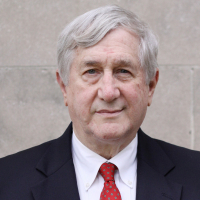Powellville DUI-DWI Lawyer, Maryland
Sponsored Law Firm
-
 x
x

Click For More Info:
-
Law Offices of Charles L. Waechter
1435 Sulphur Spring Road 1st Floor Baltimore, MD 21227 » view mapMaryland Criminal Law The Premiere Criminal Defense Firm
Child Pornography and Criminal Attorney Serving Clients throughout Maryland. Contact today for swift and professional council, your future is on the line.
800-654-7381  Charles Waechter Baltimore, MD
Charles Waechter Baltimore, MDAttorney At Law - MD, 1985
University of Baltimore SOL, J.D. - 1985
 Video Center
Video CenterClick here for our firms introductory video and video center.
 Contact UsEmail or Call 24/7
Contact UsEmail or Call 24/7Call today for your initial evaluation
Not enough matches for Powellville DUI-DWI lawyer.
Below are all Powellville Criminal lawyers.
Harold Stanley Link
✓ VERIFIEDOwner and managing attorney of the Law Office of Harold S. Link, which has been affording quality legal services at an affordable price for more than ... (more)
Susan Scofield
✓ VERIFIEDI am a solo practitioner (with a small office staff) in Rockville, MD, practicing primarily family law and all areas of custody, divorce and child su... (more)
Charles L Waechter
✓ VERIFIEDOcean City Criminal Defense Law Firm If you face criminal charges, an experienced and respected defense lawyer can help protect your rights, evalua... (more)
Wm A Lee Clarke
FREE CONSULTATION
CONTACT

 Charles Waechter Baltimore, MD
Charles Waechter Baltimore, MD Video Center
Video Center Contact UsEmail or Call 24/7
Contact UsEmail or Call 24/7



